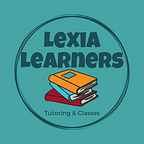Five Common Terms Used by Teachers for Dyslexia
Are you a parent navigating through dyslexia for the first time? We get you — there are a lot of stressful moments. Learning everything about dyslexia when your child has just been diagnosed is definitely NOT an easy task and is actually very time-consuming.
Among the crucial things that you first need to know are the terms often used by teachers when dealing with dyslexic students. Don’t worry because we got your back!
Here are the five terms that are often used by teachers for their dyslexic students:
1. Decoding. In dyslexia, decoding is defined as reading by sounding out. It refers to the connection between how words sound and how those sounds are represented by letters. To improve a child’s decoding skills, you can give activities associated with identifying the sounds of words. For example, ask your child to identify the first sound in a word. Then play a game of “I spy” to let your child find other objects around you that start with the same sound. Listening to audiobooks is another excellent way to boost your child’s decoding skills. Through audiobooks, a child can hear the words while seeing them, enabling them to quickly understand those sound-symbol relationships.
2. Encoding. Encoding in dyslexia refers to the ability of a learner to spell words. There are two ways to spell a word — spelling by sight and spelling by sound.
3. Fluency. The term ‘fluency’ in dyslexia is defined as the ability of a learner to read text accurately, quickly, and with correct expression and understanding. To obtain fluency, a child must first learn how to read a word accurately, and with consistent practice, fluency will follow. When the learner achieves enough fluency, comprehension is also improved.
4. Word Attack. Also known as ‘word identification,’ word attack is best known as converting graphic symbols into clear language. There are several word attack skills, including but not limited to recognizing symbols for consonant sounds, recognizing symbols for vowel sounds, recognizing capital letters and knowing when to use them, and recognizing the syllable patterns.
5. Guided Discovery. This approach, based on Socratic Teaching and is sometimes called the ‘inductive approach,’ is a teaching technique where a teacher provides examples of a concept and helps the students to identify the rules themselves, allowing them to hone their critical thinking abilities. In the guided discovery approach, students do not just passively accept the information through lectures. Instead, they are given activities that will test their problem-solving skills and, at the same time, will help them link the previous lessons to the new concepts introduced.
Finding out everything you need to know and what you need to do for your dyslexic child can get really challenging during the first few months. Still, it’s important to breathe and don’t rush the process. You can take your time but make sure it doesn’t go to waste.
You and your child may need to spend more time and exert more effort, but with consistent hard work and perseverance, you will surely overcome the struggles and experience success.
References:
Dyslexia Institutes of America (n.d.). Dyslexia Facts. https://dyslexiatulsa.com/wp-content/uploads/2013/06/Dyslexia-Facts.pdf
British Council (n.d.). Guided Discovery. https://www.teachingenglish.org.uk/article/guided-discovery
Knebel, C. (2016). Reading fluency in dyslexic brain: low Level/high content books. Dyslexia The Gift Blog. https://blog.dyslexia.com/reading-fluency-dyslexia/
Phonics and Decoding (n.d.). Reading Rockets. https://www.readingrockets.org/teaching/reading-basics/phonics?__cf_chl_captcha_tk__=pmd_PsLpOuHrzm9wzF0tgruwVBhUCHur_xhdK0QLjZD6E44-1632220897-0-gqNtZGzNA2WjcnBszQn9
The Importance of Discovery Learning (n.d.). https://www.ipl.org/essay/The-Importance-Of-Discovery-Learning-PJXJEJNUAWG
Word Attack Skills (n.d.). Evergreen Learning Centre. https://sites.google.com/site/evergreentutorrecruitment/glossary/word-attack-skills
